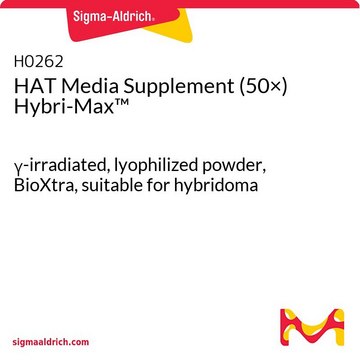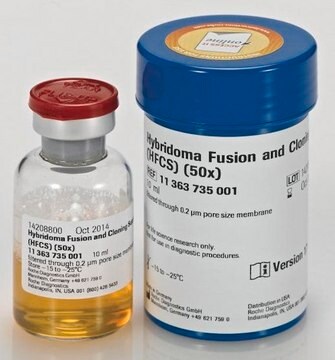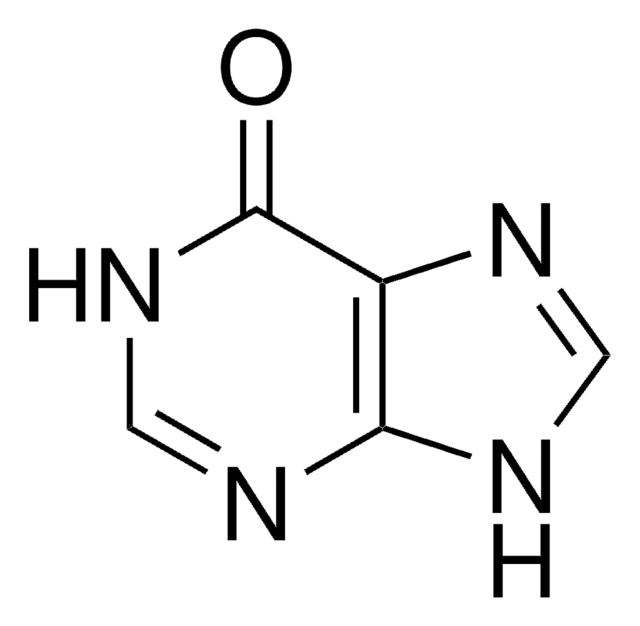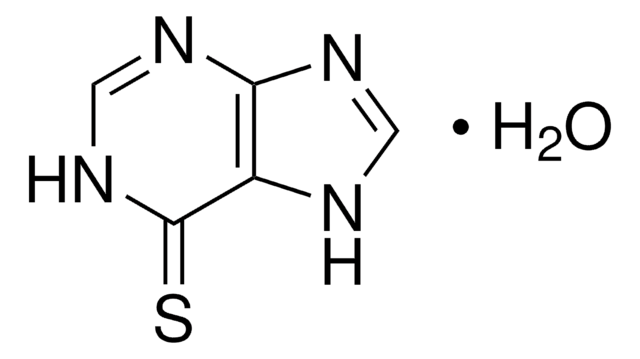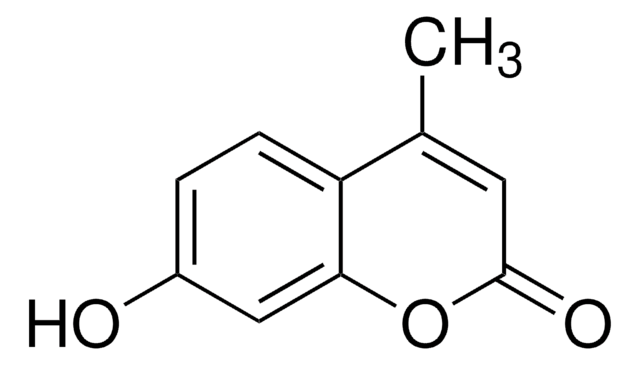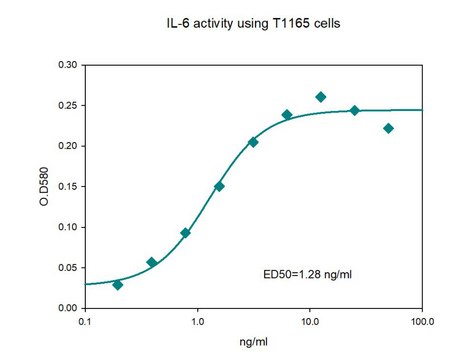A9666
Azaserine-Hypoxanthine 50x
Hybri-Max™, γ-irradiated, lyophilized powder, BioXtra, suitable for hybridoma
Synonym(s):
O-Diazoacetyl-L-serine-hypoxanthine
Sign Into View Organizational & Contract Pricing
All Photos(1)
About This Item
UNSPSC Code:
12352207
NACRES:
NA.75
Recommended Products
biological source
synthetic (organic)
Quality Level
grade
Hybri-Max™
sterility
γ-irradiated
product line
BioXtra
form
lyophilized powder
technique(s)
cell culture | hybridoma: suitable
impurities
endotoxin, tested
shipped in
dry ice
storage temp.
−20°C
General description
Azaserine-Hypoxanthine is used to stimulate cell proliferation in cell culture.
Application
Azaserine-Hypoxanthine 50x has been used in hybridoma cell culture.
Qualified for use in hybridoma cell culture applications as a selection agent.
Reconstitution
Reconstitute contents of vial with 10 mL sterile cell culture medium. Stock solution is sufficient to prepare 500 mL medium. Final working concentration: 5.7 μM azaserine, 100 μM hypoxanthine.
Legal Information
Hybri-Max is a trademark of Sigma-Aldrich Co. LLC
Signal Word
Warning
Hazard Statements
Precautionary Statements
Hazard Classifications
Acute Tox. 4 Oral - Carc. 2
Storage Class Code
11 - Combustible Solids
WGK
WGK 3
Flash Point(F)
Not applicable
Flash Point(C)
Not applicable
Personal Protective Equipment
dust mask type N95 (US), Eyeshields, Gloves
Certificates of Analysis (COA)
Search for Certificates of Analysis (COA) by entering the products Lot/Batch Number. Lot and Batch Numbers can be found on a product’s label following the words ‘Lot’ or ‘Batch’.
Already Own This Product?
Find documentation for the products that you have recently purchased in the Document Library.
Customers Also Viewed
Handbook of Mutagenicity Test Procedures, 350-350 (2012)
Handbook of Mutagenicity Test Procedures, 350-350 (2012)
Receptor editing: an approach by autoreactive B cells to escape tolerance.
Gay D,et al.
The Journal of Experimental Medicine, 177(4), 999-1008 (1993)
Our team of scientists has experience in all areas of research including Life Science, Material Science, Chemical Synthesis, Chromatography, Analytical and many others.
Contact Technical Service